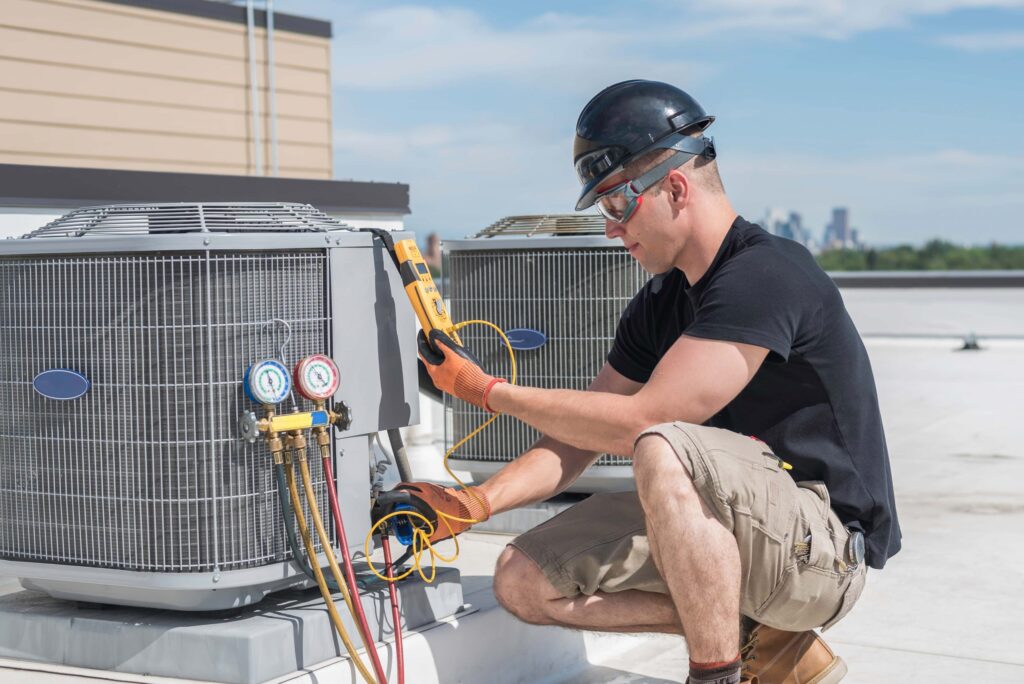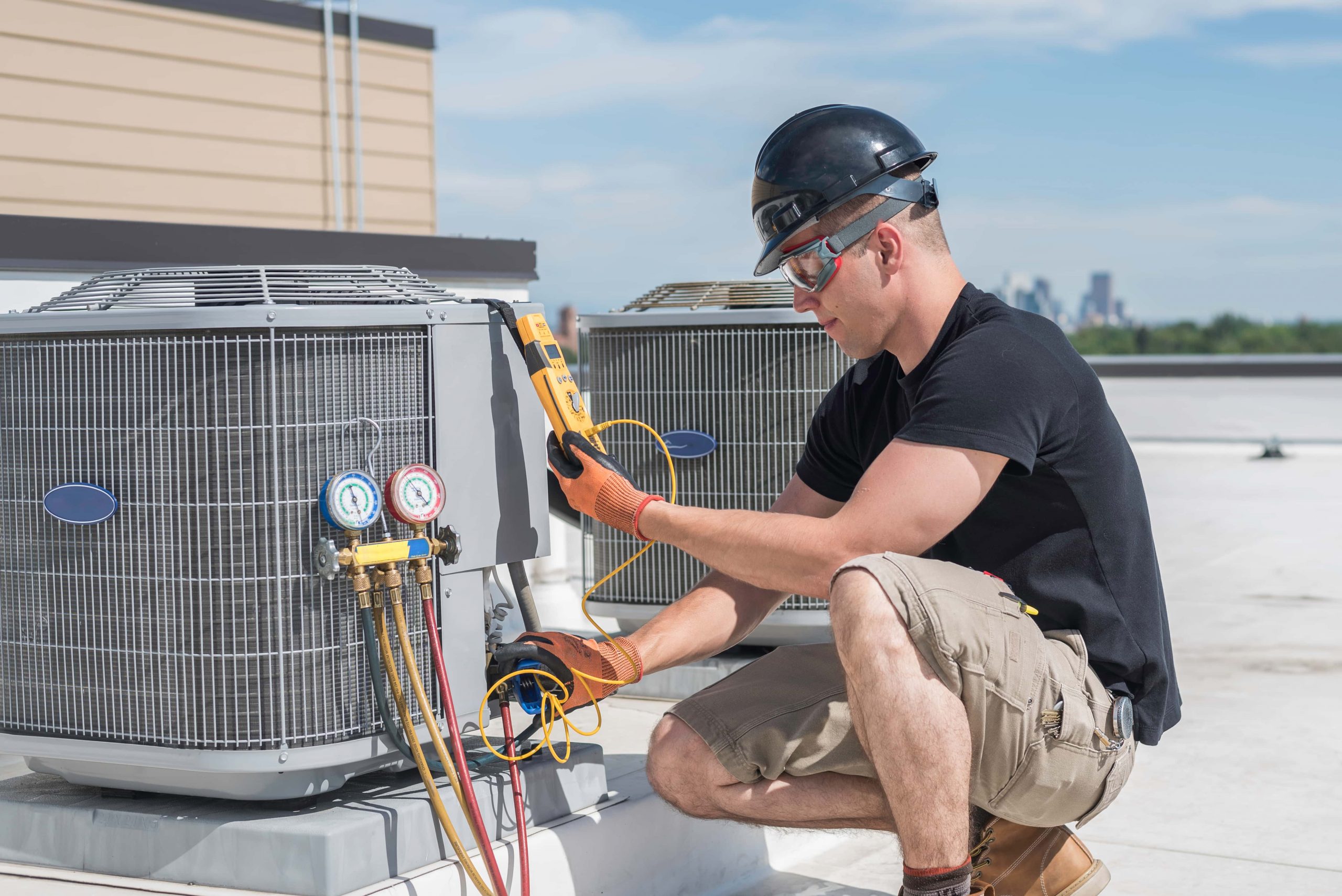HVAC Technician: Complete Guide to the Technical Course

If you are looking for a solid technical career with high market demand and growth opportunities, the technical course for HVAC Technician is a strategic choice. The Heating, Ventilation, and Air Conditioning (HVAC) sector is expanding, driven by the need for comfortable, efficient, and sustainable environments.

What is an HVAC Technician?
An HVAC Technician is a professional specialized in installing, maintaining, and repairing heating, ventilation, and air conditioning systems. They work in residential, commercial, and industrial environments, ensuring not only thermal comfort but also energy efficiency and air quality.
In the technical course for HVAC Technician, students learn to interpret diagrams, identify faults, and apply precise solutions, always following technical and safety standards.
Technical Course Content
A technical course in HVAC covers both theoretical and practical subjects, preparing students to work across the entire sector. Common topics include:
-
Fundamentals of heating, ventilation, and air conditioning.
-
Electrical and electronic systems applied to HVAC.
-
Installation techniques for split systems, VRF, and chillers.
-
Fault diagnosis and preventive maintenance.
-
Concepts of energy efficiency and sustainability.
Why Invest in a Technical Course for HVAC Technician?
1. High Employability
The market needs qualified professionals to handle increasingly modern systems.
2. Versatile Career Path
HVAC Technicians can work in installation, maintenance, technical sales, and consultancy.
3. Technology and Innovation
The course trains you to work with state-of-the-art equipment and automated solutions.
4. Job Stability
Climate control is an ongoing need in various sectors, ensuring constant demand.
Areas of Work
After completing the technical course for HVAC Technician, you can work in:
-
HVAC installation and maintenance companies.
-
Industries requiring strict temperature and humidity control.
-
Construction and corporate building projects.
-
Hospitals, hotels, shopping centers, and data centers.
💡 Tip: To stand out, choose a technical course that offers hands-on classes, well-equipped labs, and recognized certifications. This increases professional credibility and opens doors to more specialized roles.
FAQ – HVAC Technician Technical Course
1. How long does an HVAC Technician technical course take?
Most HVAC Technician technical courses last between 6 months and 2 years, depending on whether it’s an intensive or part-time program.
2. Do I need previous experience to enroll?
No. Most technical courses are designed for beginners, but having basic knowledge of electrical or mechanical systems can be an advantage.
3. Is the HVAC field in high demand?
Yes. The demand for qualified HVAC Technicians continues to grow worldwide due to climate control needs in homes, businesses, and industries.
4. Can I work abroad as an HVAC Technician?
Yes, but you may need to obtain local certifications depending on the country. The skills learned in the technical course are highly transferable.